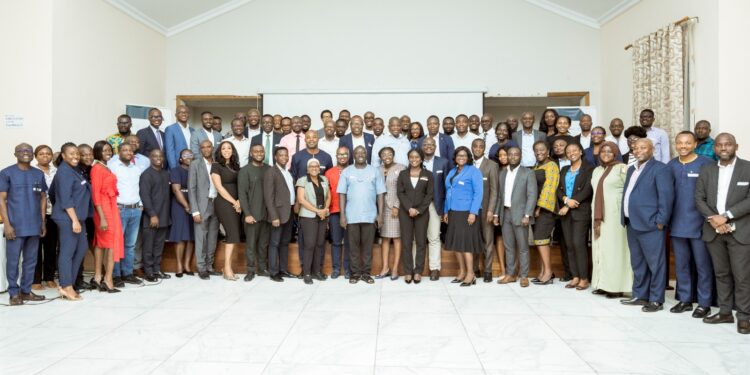DBG to establish ESG Centre of Excellence; champion ESG integration by financial institutions
DBG has noted that it is committed to ensuring good environmental and social performance through the integration of sustainable development in its financial and non-financial activities and by seeking to address the E&S risks of its financing and lending activities.

The Development Bank Ghana (DBG) is looking to create a centre of excellence to champion the integration of Environmental, Social, and Governance (ESG) systems in the operations of its partner banks as well as small and medium-sized enterprises.
Speaking to norvanreports at the ongoing Environmental and Social Risk Management Training of Trainers (ToT) Programme for Banks and Specialised-Deposit Taking Institutions (SDIs) being spearheaded by the DBG, World Bank and Finance Ministry, Head of ESG, Sustainability & Climate Finance at DBG, John Akuoko-Tawiah, noted the Centre is likely to be ready early next year.
According to Mr Akuoko-Tawiah, the ESG Centre of Excellence is premised on the need to have a tailored and overarching special purpose vehicle that is going to provide training and support to financial institutions.
“We see a lot of training and support in silos, but we think that we need to have an overarching centre of excellence that is geared towards ESG as the governance side of the environmental and social management system, and also the opportunity side that is the sustainable finance.
“So that whilst we are building up the governance systems of the environmental and social system, we are making our partners and financial institutions ready to absorb or receive development finance linked investments, which we believe that together we can able to bring that transformation into the financial sector and also be able to help the private sector to transform,” he quipped.

Adding that, the training is to help the DBG identify gaps that financial institutions struggle with in terms of implementing Environmental and Social Risk Management systems.
“As part of the training, we will want to understand why banks and SDIs are not able to implement Environmental and Social Risk Management systems correctly per our requirements and also provide solutions to that. We are currently coming up with technical assistance that’s supposed to scale our partner banks who have an Environmental and Social Risk Management system that is kind of nascent so that they can be able to effectively implement them and also integrate into their lending decisions,” he stated further.
The six-day workshop is being participated by staff from 35 financial institutions comprising commercial banks and selected SDIs and finance houses in the country.
ESG systems have become essential for financial institutions and SMEs due to the growing recognition of their importance in risk management, compliance, access to capital, reputation, cost savings, innovation, competitiveness, sustainability, stakeholder expectations and due diligence. Integrating ESG into business strategies can lead to long-term sustainability and competitiveness in today’s evolving economic landscape.
The Board of Directors of DBG approved the bank’s Environmental and Social Management Policy and associated Procedures on December 1, 2021. The Policy enables DBG to align itself to best international practices and local legislation governing environmental and social issues and forms the basis of DBG’s Environmental and Social Management System (ESMS).
The ESMS commits the Bank to implementing effective environmental and social management measures in all its activities, products, and services. DBG has noted that it is committed to ensuring good environmental and social performance through the integration of sustainable development in its financial and non-financial activities and by seeking to address the E&S risks of its financing and lending activities.
- Advertisement -
- Advertisement -



